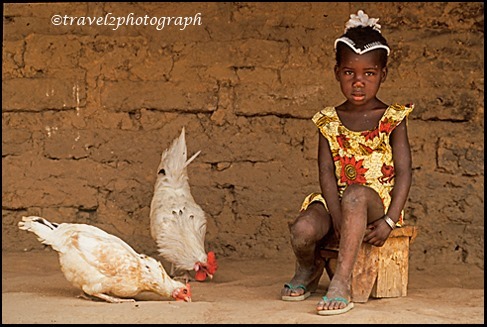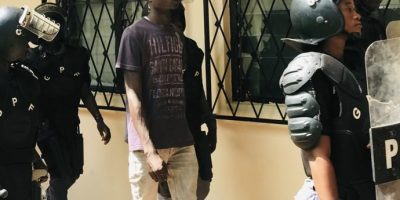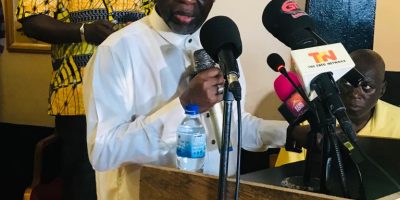 by Alagi Yorro Jallow.
by Alagi Yorro Jallow.
The Day of the African Child has never been more important to commemorate. “BlackLivesMatter,” police bestiality and injustices under COVID-19 precautions and responses reflect the many challenges and limited freedoms that sparked the “Soweto Uprising” on June 16, 1976.
International Day of the African Child is observed on June 16 every year since its recognition by the African Union. The day aims at raising awareness about the condition of African children and how there is an urgent need to provide them with a better standard of living. Let us all reflect on our contribution to make our children thrive and develop. We all have to uphold child rights, advocate for them, and, most importantly, protect them.
The day of African Child encourages people to share something special with a child in Africa. International Day of the African Child commemorates those killed on June 16, 1976, during the Soweto Uprising in South Africa. On International Day of the African Child, various events and programs are held across Africa and other countries highlighting their problems. The day recognizes the courage of students who marched for their right to better education. About ten thousand black school children had marched in a column protesting against the poor quality of their education. They also demanded that hundreds of young children were shot, and the weeks following witness protests in the region lead to more deaths. Hector Pieterson, a young South African schoolboy being the face of the uprising after a photo of the child being carried by a Soweto resident, was published in newspapers. His death anniversary is celebrated as Youth Day in South Africa, where they honor young people and highlight their need. Today as we celebrate the Day of the African Child, let leave no child behind for Africa’s Development.
The Day of the African Child is also an opportunity to raise awareness for the ongoing need to improve the education, health, and security of children living across Africa.
It is a need that still very much exists today. Of the 57 million primary school-age children out of school around the world, over half are from sub-Saharan Africa not taught in their vernacular language.
All black lives originate from Africa. It has been divided and ruled from the British colonies’ 1619 slavery, the 1884-5 Berlin Conference, and centuries of intergenerational violence, erasure, and indoctrination.
A world plagued by violence, economic exclusion, and unjust policing of narratives, laws, and poverty. These, as highlighted last year, do not exist in isolation or because of a crisis. It is clear that supremacy has had a significant influence on how countries were founded at independence, wars were justified, and resources exploited. Africa’s history has always been skewed, as Mariam Makeba said, “you do not know anything about any place until the white man gets there. Only when he comes, and he says ‘boof’ I have discovered you – know you exist, which is ridiculous”.
Black lives have had to endure unimaginable indignities that continue to play out under the guise of freedom and liberty whether it is police brutality in homes or protesting for food parcels during lockdowns or abuse within precincts, its no different to the skewed jurisprudence in criminal justice, a rollback of African boy and girl child rights protections or exploitative labor practices in multinationals.
The hierarchy of supremacy remains anchored on generations of privilege that are often ignored or inconvenient where power exists. It is inescapable as if a part of the air we breathe, fake smiles we face, and triggers of trauma we navigate daily.
Human Rights, News, Women's Corner
International Day of the African Child:




Ma sha Allah great and thanks for sharing